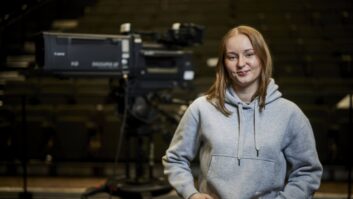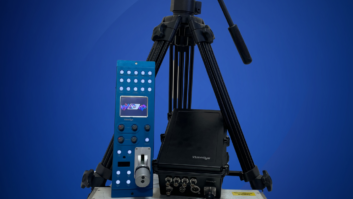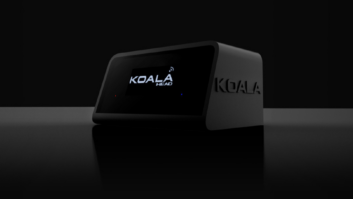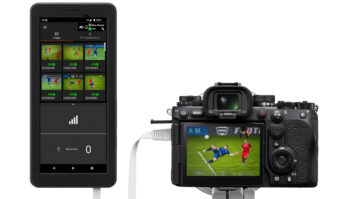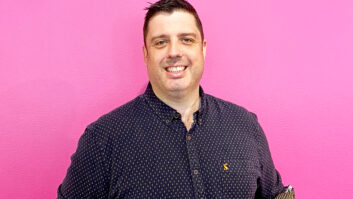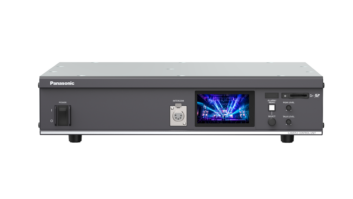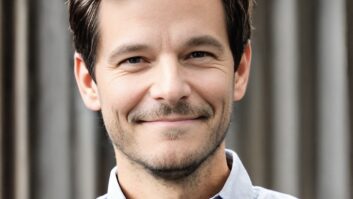Faye Moseley, camera assistant trainee, dock10 tells TVBEurope why it’s always best to be upfront about what you don’t know, rather than pretending you know everything, and how bribery is a great way to get on the good side of your colleagues.
Talk us through an average day in your role.
At the start of the traineeship, we would come in for training and practice building cameras, usually with the dock10 engineers. Once we were confident enough with the cameras, we started going on shoots. The first show I worked on was Deal Or No Deal, and now I’m on Wheel Of Fortune. I rig the cameras at the start of a show, put the SMPTE cables in the wall boxes and we back-focus and line-up the cameras. During the show, I cable bash, move cameras and make sure the operators are okay – I might put a brew on or give them some sweets, just to get on their good side! I really enjoy it – throughout the day, I just absorb so much information. It’s a great way to learn.
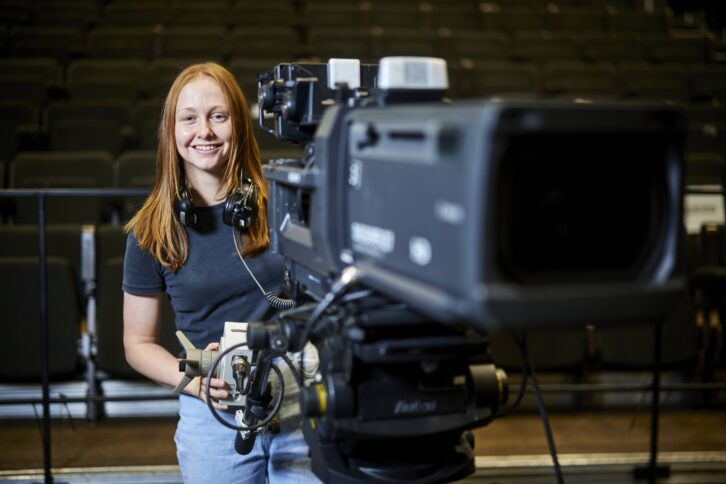
How did you get started in the media industry?
I studied film at the University of Salford, so I didn’t really have a background in TV production. But I was keen to get into dock10 because they host such major shows in television. I knew just getting a foot in the door would help me learn so much and meet plenty of people. I just sent my CV and got an email back, asking me for an interview. And then I got the job, I couldn’t believe it. Straight after I graduated, I started at dock10.
Even though I studied film, I think it helped me in my application. My course gave me a technical knowledge of cameras, despite them being very different to the ones we use in TV. I was very upfront about it – I think if I came in and said I know all about filming with TV cameras I’d have been caught out very quickly. It’s always best to be upfront about what you don’t know, rather than pretending you know everything. Don’t sell yourself short, but don’t oversell yourself either.
What training did you have before entering the industry?
I’d done some freelance work, shooting and editing corporate films for recruitment companies to put on their website and LinkedIn. I also did a lot of photography work for free, for things like friends’ birthdays, just to try to build a portfolio. But I never managed to get any TV work experience – I applied for lots of work experience jobs but found it really difficult to land a placement.
Why do you enjoy working in the industry?
It’s my dream job – I get to do what I love each day. I know that sounds so cringe, but I still can’t believe I’m doing it. Even when I am crawling around a studio with a cable or when I am tired after a long day, I enjoy it regardless. When I was at university, I was really worried that I would never land a job in TV. There were so many people on my course who wanted the same thing as me, and I always used to wonder how I could manage to break in given the competition.
What piece of advice would you offer someone looking to explore a role similar to yours?
I would say that it is really important to be honest about what you can and can’t do. You’re not expected to know everything, and you’ll learn on the job working with people. There is a massive gap between what you learn at university and the reality of working in TV. Some people who have been through university can act like they know everything. When you start in the industry, you’ll meet people who have been doing the job for 40 years. If you go in and say you know what you are doing, I’m not sure if people like that.
